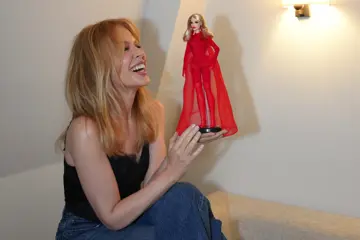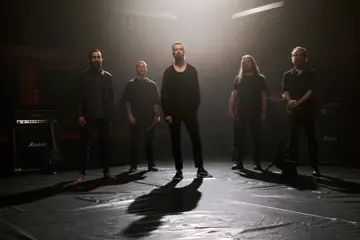 Rodrigo Y Gabriela
Rodrigo Y Gabriela"Well it was mainly an idea that me and Rod wanted to pursue with our audiences,” Quintero begins, explaining the genesis of their latest album, 9 Dead Alive.
“As we don’t sing, it’s easy for a band like us that has a very faithful audience – and we’re not a mainstream act – to be able to communicate not just by playing but also to share a little bit of the things we like and the things that we would consider inspired us to play music.”
Fans would be aware of the backstory but for those just getting acquainted, Quintero and Rodrigo Sanchez met in their hometown Mexico City in 1988, when they were both 15, Sanchez forming a heavy metal band in the early ‘90s in which Quintero also played. Frustrated by the limitations of the domestic market, in 1999 the pair headed for Europe, eventually settling in Dublin where they’d frantically play their favourite covers on acoustic guitars. Their dextrous playing soon attracted attention, scored them a manager and eventually an Irish #1 in 2004 with an eponymous live album that included heady versions of Led Zep’s Stairway To Heaven and Metallica’s Orion, and their international career took off.
“Lately there’s been a lot of things that you can say that humanity is a terrible thing, that humanity is bad and blah blah blah, and I said [to Rod] what has been good for humanity, made by humans? These were just conversations and we came up with a lot of male figures and I said for sure we have to include women. Because we can’t do an album of thousands of people or hundreds,” Quintero laughs.
The pair chose eight people to represent the best that humanity has offered by way of exemplary lives and, in Quintero’s words “still affect us somehow”; four men: Antonio de Torres Jurado, who in the 19th century developed the acoustic guitar as we know it today; psychotherapist and Holocaust survivor Viktor Frankl; Arctic explorer and High Commissioner to the pre-UN League of Nations for human rights Fridtjof Nansen and Russian novelist Fyodor Dostoyevsky; and four women: 19th century African-American freedom fighter Harriet Tubman; 17th century Mexican poet and prodigy Sor Juana Inés de la Cruz; Chilean poet Gabriela Mistral and twice queen, 12th century patron of the arts Eleanor of Aquitaine.
Don't miss a beat with our FREE daily newsletter
Not that the pieces Sanchez and Quintero composed were directly inspired by these people. “We said, let’s do the music, and once the music was finished, then we said, oh, this one is for this person. So we just let it go by intuition and just let it out, you know? More like an abstract selection. And that track, Torito, was another idea from me to say, well, to realise we are part of the whole balance of the Earth and Universe, so we have to pay tribute to that.”















